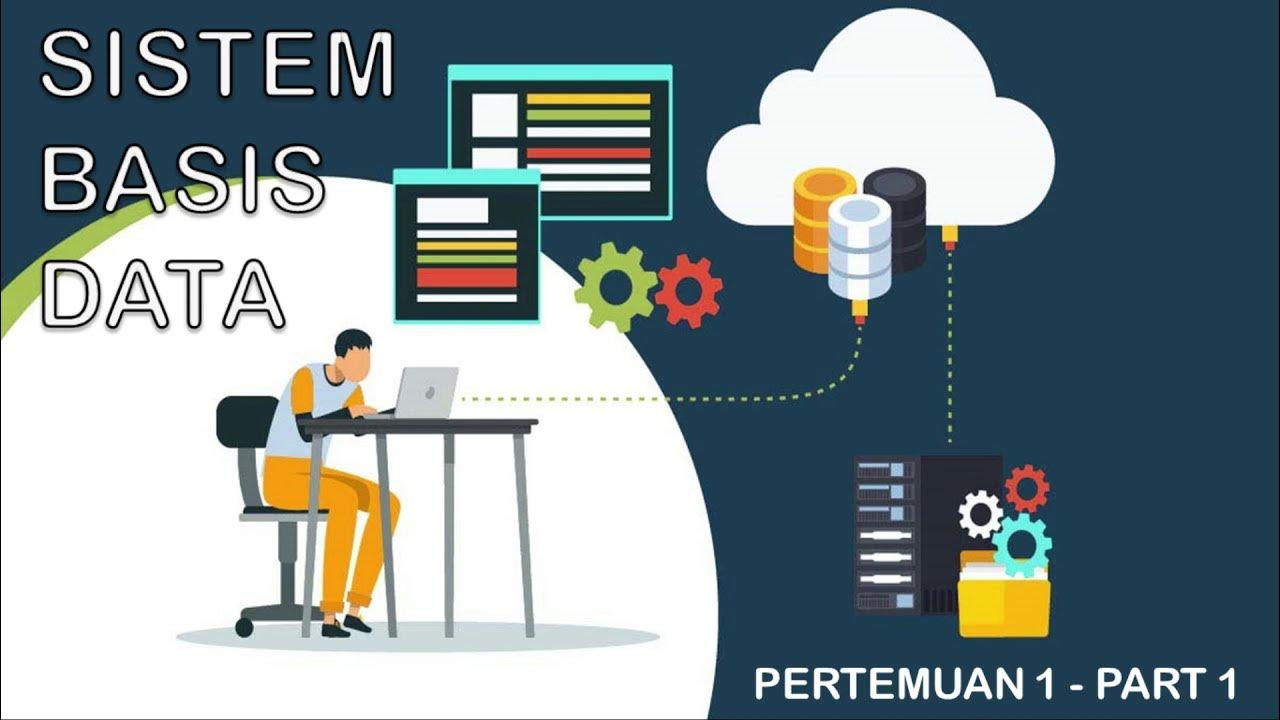Chapter 2 Class 11 Maharashtra State Board Information Technology Introduction of DBMS std 11th IT
Summary
TLDRThe video script discusses the importance of databases in everyday life, using examples like personal information management and medical records. It emphasizes the concept of data and how it differs from information, highlighting the need for organized data storage and retrieval. The speaker also touches on the practical applications of databases in various scenarios, such as educational records and crime reports, stressing the significance of systematic data management for efficient decision-making.
Takeaways
- 😀 The speaker is welcoming everyone back to their channel and introducing a new chapter on Billion Education with a focus on police entries and population complaints.
- 🔍 The discussion revolves around the concept of databases and their importance in managing large amounts of data, which can be useful for students preparing for exams.
- 💡 The speaker emphasizes the practical application of databases in everyday life, such as using information for travel or organizing personal contacts.
- 🗣️ The script mentions the difference between data and a database, highlighting that a database is a collection of related data, while data is individual pieces of information.
- 📚 Examples are given to illustrate how a database can be used to organize information, such as collecting names and details of people for security purposes.
- 👨💻 The importance of maintaining records, especially in healthcare, is discussed to ensure proper patient care and avoid medication errors.
- 🏫 The script touches on the organization of student records in schools and the need for systematic record-keeping for administrative purposes.
- 📈 The speaker talks about the use of databases in educational settings, such as tracking student performance and managing subject records.
- 🗂️ The necessity of organizing information systematically is highlighted, using the analogy of addressing mail to ensure it reaches the correct destination.
- 📝 The script concludes with a focus on the importance of data in making informed decisions and the role of information in various aspects of life, including education and healthcare.
Q & A
What is the main topic of the video script?
-The main topic of the video script is the introduction to database management systems, focusing on the concept of databases, their importance, and their applications in everyday life.
What does the acronym 'DBMS' stand for?
-DBMS stands for Database Management System, which is a software system designed to manage and maintain databases.
Why are databases important in daily life?
-Databases are important in daily life because they help organize and manage large amounts of data, making it easier to retrieve, update, and analyze information when needed.
What is the significance of the term 'data' in the context of the script?
-In the context of the script, 'data' refers to individual pieces of information that can be organized and stored in a database to be used for various purposes, such as record-keeping, analysis, and decision-making.
How does the script differentiate between 'data' and 'information'?
-The script suggests that 'data' refers to raw facts, while 'information' is data that has been processed and organized to convey meaning or be useful for a specific purpose.
What is an example of how databases are used in the script?
-An example given in the script is using a database to manage and organize contact information, such as names, job titles, and other relevant details, to facilitate easy access and communication.
What is the purpose of organizing data systematically as mentioned in the script?
-Organizing data systematically allows for efficient storage, retrieval, and analysis of information, which can be crucial for various applications like managing student records, patient histories, or customer data.
Why is it important to have records in a doctor's office as highlighted in the script?
-Having records in a doctor's office is important for tracking patient history, managing treatments, and ensuring continuity of care, which can be critical for patient health and medical decision-making.
What is the role of a database in educational settings according to the script?
-In educational settings, a database can be used to manage student records, track academic performance, and organize subject-related information, which aids in administrative tasks and educational planning.
How does the script suggest improving the organization of data?
-The script suggests improving the organization of data by using systematic approaches, such as categorizing and structuring data in a way that makes it easily accessible and useful for various applications.
What is the importance of maintaining updated records as discussed in the script?
-Maintaining updated records is important for ensuring the accuracy and relevance of information, which can impact decision-making processes, service delivery, and overall efficiency in various sectors like healthcare, education, and business.
Outlines

This section is available to paid users only. Please upgrade to access this part.
Upgrade NowMindmap

This section is available to paid users only. Please upgrade to access this part.
Upgrade NowKeywords

This section is available to paid users only. Please upgrade to access this part.
Upgrade NowHighlights

This section is available to paid users only. Please upgrade to access this part.
Upgrade NowTranscripts

This section is available to paid users only. Please upgrade to access this part.
Upgrade NowBrowse More Related Video
5.0 / 5 (0 votes)





